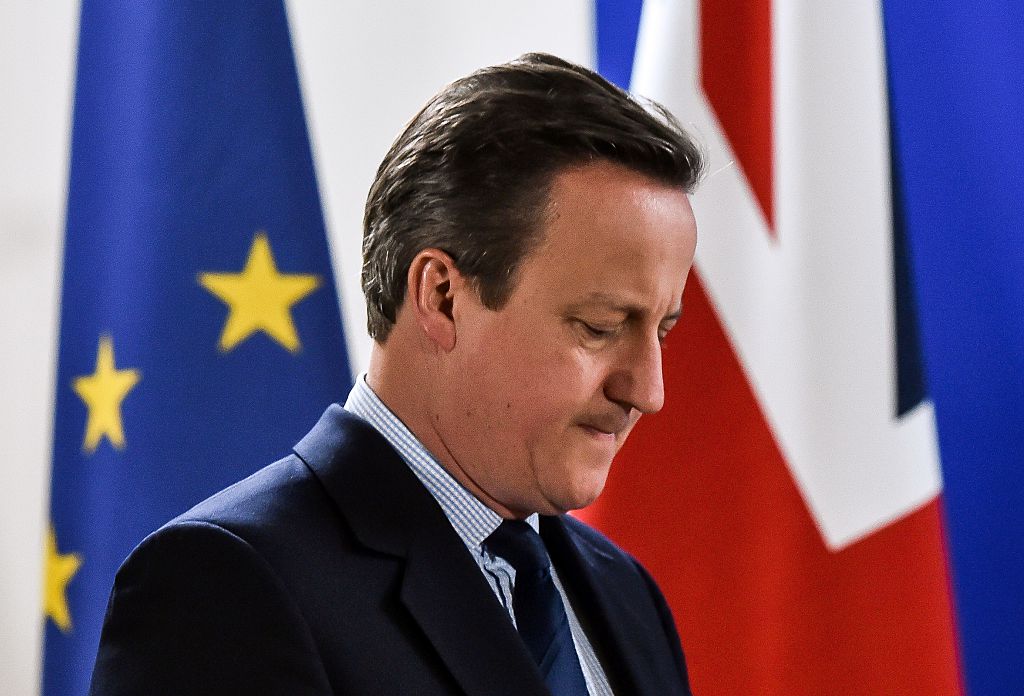Those opposed to leaving the European Union repeatedly accuse Brexit of being based on ignorance fed by lies. The ‘lie’ they invariably refer to is the £350 million on the side of the Boris bus. In reality, it was the Remain campaign, and its interminable Rejoiner sequel, that was and is based on systematic distortions and gross misunderstandings.
One might shrug one’s shoulders if the distortions came only from business lobbies, EU-funded think tanks, the subsidised European media and the like. But some of the most damaging originate within the British state and its associated bodies. No one denies that the Civil Service has been and remains overwhelmingly opposed to Brexit. The ardent Remainer Lord Adonis said that the 2016 vote caused ‘a nervous breakdown’ in Whitehall. Subsequent comments, articles and books by senior officials amply confirm this impression. Michel Barnier noted in his diary that British officials were ‘unhappy’ and ‘embarrassed’ when a minister tried to take a strong line. The same mindset is patent in economic forecasts.
Rejoiner propagandists like nothing better than to refer to ‘official figures’ and ‘the government’s own figures’ when trying to blame all our ills on Brexit. Supposedly pro-Brexit ministers have been deplorably reluctant to disavow misleading statistics. It was refreshing when Kemi Badenoch firmly rejected an economic forecast originating in her own Department of International Trade. More on that later.
Let us briefly recall just a few ‘official figures’. The mainstay of ‘Project Fear’ in 2016 was the Treasury report on ‘the immediate economic impact’ of Brexit: ‘a vote to leave would represent an immediate and profound shock to our economy… a recession… an increase in unemployment of around 500,000, GDP would be 3.6 per cent smaller.’ Of course, there was no recession and the UK economy grew faster than the Eurozone. Recall too the astonishing claims made more recently by the former Governor of the Bank of England, Mark Carney, that Brexit had made the British economy shrink by around 20 per cent compared with Germany. Given that the British economy had grown at almost the same pace as Germany’s since 2016, this was too much for all but the dimmest Remainers to swallow, though it still lurks in cyberspace.
The latest dodgy figures – in origin probably misunderstandings of questionable estimates issued by the Office of Budget Responsibility and the Department for International Trade – have been adopted uncritically by much of the media, and are repeated as Holy Writ by thousands of people who evidently do not understand them. First, it is repeated that Brexit has caused a ‘hit’ to the British economy of 4 per cent of GDP, and second that accession to the Comprehensive and Progressive Agreement for Trans-Pacific Partnership (CPTPP) will bring negligible benefit – only 0.08 per cent of GDP in ten years’ time. Both of these figures are brandished triumphantly as ‘official figures’ and used to contrast the supposedly huge economic damage caused by Brexit with the meagre benefits of trading elsewhere.
The ‘4 per cent hit’ comes from a 2021 OBR guesstimate that the UK might grow by 4 per cent less over the long term than if there had been no Brexit, not of course a ‘hit’ to the economy’s present level. This forecast is flawed by mistaken assumptions about immigration and an empirically weak claim about a link between trade and productivity. The real data that has since appeared shows that there may have been a fall (so small as to be hard to measure) in exports to the EU, but certainly not enough to have a major impact on GDP.
What about that 0.08 per cent? It originated from the DIT using the American GTAP general equilibrium model of trade to calculate the impact of changes in trade barriers. This model has a mixed record for the accuracy of its forecasts, and probably underestimates the long-term dynamic effects of broader trade liberalisation. Hence Kemi Badenoch’s disavowal of it as ‘stale, static, out of date’. Besides, the CPTPP is only one element of a range of post-Brexit trade policies: other new or upgraded trade deals (including with Australia, New Zealand, and Japan) and changes to UK regulations (including in financial services, gene editing, and data processing). It is the total effect of all these changes on exports and growth that has to be compared with the limited downside of leaving the EU.
Rejoiners assume unquestioningly that membership of the EU brought us enormous benefits, and that losing them is a cause for general weeping and gnashing of teeth. But there is some evidence that the benefits to the UK of Single Market membership were negligible. The Bertelsmann Stiftung (a pro-EU German think tank) calculated them back in 2014. They worked out average income gains from EU integration between 1992 to 2012. Denmark was the winner, with every Dane making €500 per year – perhaps enough for a modest family holiday. But our gain was a princely €10 per year each – not quite enough for a month’s subscription to the New European.
Truly interesting would be an independent calculation of the cost of rejoining the EU. The most obvious would be our annual financial contribution. If Brexit has caused a fall of 3 per cent to 5 per cent in UK goods exports to the EU, that amounts to £5 billion to £8 billion (in 2019 prices); whereas membership dues (net) were £8 billion to £11 billion in 2018 and would be much higher now. In other words, any gain from rejoining the EU would be more than cancelled out by the membership fee. Compare the Bertelsmann Stiftung estimate with our membership payments. If their estimate is right, it was costing us roughly €200 each to get back €10 each from Single Market membership.
There would also be the potentially crippling consequences of joining the Eurozone. Another German thinktank, the Centre for European Policy, estimated in 2019 that Euro membership since inception had cost every Frenchman €56,000 and every Italian €74,000.
The CPTPP carries no such costs, and our annual exports (in surplus) to this dynamically growing region are running even now at £60 billion. A mere 10 per cent rise would more than offset losses in exports to the EU.
A sensible discussion of future trade policy would demand dispassionate analysis, not the repeated use of dodgy economic dossiers by the spin-doctors of Rejoin.







Comments